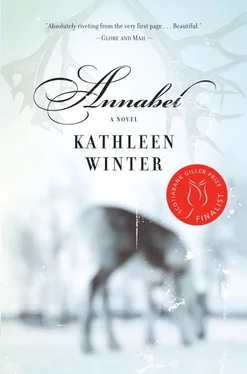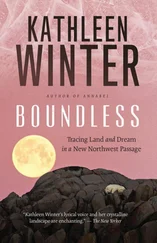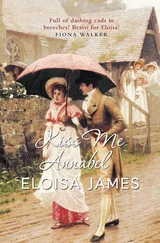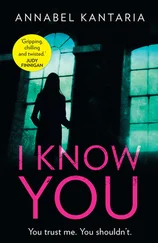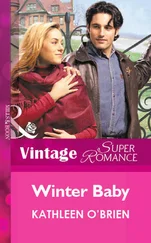Jacinta swept the floors and wiped the counters, then got a bucket of red-hot water with Pine-Sol in it and a mop, and scoured the kitchen floor and hallway. She dumped the water down the toilet and filled the bucket again, then put rubber gloves on and took a rag and a scrubbing brush and got down on her knees on an old flat cushion and washed every speck of dirt out of the corners and off the baseboards, then she washed the stairs by hand, and polished the toaster and the fridge, and washed the fingerprints off the walls near all the light switches and off the doors near the doorknobs and off the telephone. She went outside and then came in again to smell with a fresh nose how clean the house smelled, and then she got in bed beside sleeping Treadway and thought how good it would be when he went on his trapline, how there would be fewer footprints to clean.
WHEN THOMASINA RETURNED TO Croydon Harbour, she rented a room in the Guest House, the big white house built by Moravian missionaries and bought by Sir Wilfred Grenfell’s society to rent to new teachers and doctors. Thomasina did not intend to build again. She was past building, or sending down roots, or planning into the deep future. Approaching fifty, she knew there is a deep future in one’s life for only so long, then there is no deep future. There is a cliff, you drop off it, and your life comes to an end, and hopefully it has been a life in which you touched other lives with some sort of constructive tenderness.
Wayne’s grade seven classmates were not sure what to make of their new teacher. Some of their parents had a few things to say about Thomasina Baikie around the dinner table. How she had gone off gallivanting, after her husband, Graham Montague, had drowned with their little red-haired daughter. She did not look now the way she had looked before. Her hair had turned salt-and-pepper and she had cut it, and she wore wire glasses and jeans. You got the feeling something radical could happen with her around.
“What is she doing living in that place?” Brent Shiwack said at recess time. “My dad says she must be nuts to pay rent there. It’s only for visitors.”
In class Thomasina did not speak to her students as if they were children, and she did not single Wayne out.
“When you were all babies,” she said, “my husband died.”
Wayne knew this. He remembered the photograph of Graham Montague that had sat on her sideboard.
“I wanted to see the world, and he said that was all right with him, just wait a year. But it never happened. And then he died.”
The class did not know what to make of this.
“You don’t say died,” Donna Palliser whispered. “You say passed away.” There was an uncomfortable feeling in the room. Those who did not smirk tried to look respectful. A man had died.
“So now I can go wherever I want.” Thomasina handed them each a blue stone on a piece of elastic. Each stone bore a painted eye that looked out with severity. Wayne felt wary of the eye. The girls tied theirs onto their wrists and the boys laid them on their desks. The eyes had come from Greece. Thomasina showed them a clay lantern that was nothing but a bowl that fit in your hand, and you filled it with olive oil and lit a piece of wick that floated in the oil, and that was how you had light. Using the projector with clacking, whirring sprockets whose sound Wayne loved, she showed them a Greek dance in which everyone did steps that looked easy but were not.
“Why do we have to watch this, Miss?” Brent Shiwack said. “It’s queer.”
Wayne saw the dance as an elaborate knot but would not say so out loud. It was like the knots his father made in traps and bowlines. Wayne saw it as an interesting mathematical pattern, and wished he could trace its lines with his body.
“How come you don’t live in a normal house, Miss?” Brent Shiwack asked. “How come you live in the Guest House?”
“I used to live here in a normal house. I used to live in the house the Michelins live in now.” Everyone looked at Wally Michelin. Wally shrunk in her desk. “It’s a nice house. It’s a beautiful house for the Michelins. But if I was there I’d look out the windows and see my husband, Graham, coming past the fence with a bucket of water for his horse. I’d see my daughter, Annabel. I’d smell the rain on her clothes. She used to sneak up from behind and hug me. Her breath was like cold petals.”
When Thomasina spoke the name Annabel, Wayne realized this had been the name she called him years ago.
He had thought the name was Amble, which was a nonsense name, he realized now, but when he was small it had been like any other nickname. But it wasn’t Amble. It was Annabel. Why had Thomasina called him that?
Everyone talked about the new teacher at recess. Teachers didn’t tell you about the cold breath of their dead daughters. They didn’t give you stone eyes. Wayne was glad Thomasina had not told the class she had known him when he was younger, or that she had sent him postcards with bridges on them from all the places she had travelled.
Thomasina waited for Wayne to speak to her. He spoke as he fed the newts in the class aquarium while she corrected math reviews. The recess bell had rung and everyone was yelling past the windows. There were crows in the yard, and frost in the asters.
“I made a bridge.” Wayne’s voice came out faint, as if he were trying to talk to Thomasina through layers of old paper. “I got all your postcards and I made my own bridge.” He did not tell her Treadway had helped him build it, or that his father had later taken it down.
“You did?”
“It was like the one in Florence. The one the Germans didn’t destroy in the Second World War.”
“Ponte Vecchio.”
“It was great. Me and Wally Michelin had it going all summer. It’s gone now but we had lights on it and everything. I have all my postcards in a tin.”
Thomasina had been watching Donna Palliser and her clique. She had noticed undercurrents normal for a grade seven class; she had learned at Harlow to watch for them, and she had her own insight. Thomasina had always had insight. Graham Montague had called it second sight, but she knew it was not that. It was simply stepping back from a scene and letting its layers reveal themselves. She did not have to step back far or wait long to see below the surface of the life of Wayne Blake.
“It was Annabel you called me, wasn’t it? When I was little.”
Thomasina saw that the child she had secretly named Annabel, in memory of her own lost daughter, had become graceful and mysterious. She saw how he sat at the back of the class, quietly unrolling the big map or reading library books stuck inside his textbooks. She saw how he walked at the edges of the corridors, the gym, the schoolyard. He had no idea of the circumstances that had surrounded his birth, yet a thoughtfulness lay in his eyes that the other children, save for Wally Michelin, did not have. It was the spirit a poet might have, or a scientist, or anyone who sees the world not as he or she has been told to see it, with things named and labelled. Wayne Annabel, as she called him in her mind now, saw everything as if it had newly appeared. He looked at each thing as if he had never seen it before: chalk, a map of Argentina, or grasses collected in science class, or the steps of the Greek dance she had tried to introduce. When Wayne Blake walked, he floated. He was Wayne, she saw now, and he was Annabel. He was both at the same time, but he did not know this.
“I’m sorry about that, Wayne,” she told him now. “I should have called you the name your father gave you. I didn’t think clearly enough. I should have kept my sorrows about Annabel to myself.”
Читать дальше
